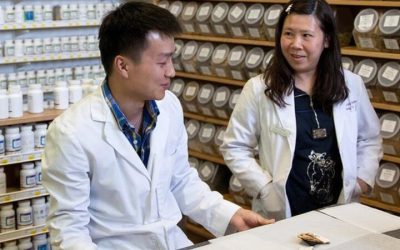Acupuncture, an ancient practice rooted in traditional Chinese medicine, has gained significant traction in Western healthcare systems due to its holistic approach to treatment. For those intrigued by this healing method, enrolling in an Acupuncture Course can be a transformative career move, offering a blend of traditional knowledge and contemporary application.
Understanding Acupuncture Courses
What to Expect
Acupuncture courses are designed to equip students with the theoretical knowledge and practical skills needed to become proficient practitioners. These courses often cover a broad spectrum of topics, including but not limited to:
- Foundations of Traditional Chinese Medicine: : Understanding the philosophical and medical foundations such as Qi, Yin-Yang, and the Five Elements.
- Acupuncture Techniques: : Training in various needling techniques, moxibustion, cupping, and other methods.
- Anatomy and Physiology: : Detailed studies on human anatomy and how it correlates with acupuncture points.
- Pathophysiology and Diagnostics: : Learning to diagnose conditions from a Chinese medicine perspective, including pulse and tongue diagnosis.
- Clinical Practice: : Hands-on training with real patients under supervised settings to hone practical skills and bedside manners.
Duration and Certification
Typically, acupuncture programs can range from 3 to 5 years for a full-time study, depending on the depth of the curriculum and the requirements of the certifying bodies. Most courses culminate in a certification or a degree that is recognized by professional acupuncture or holistic medicine boards, which is crucial for practicing legally.
Career Opportunities and Growth
Diverse Career Paths
Graduates of acupuncture courses can explore a variety of career paths:
- Private Practice: : Many acupuncturists opt to open their own practice, providing services directly to patients.
- Integrative Healthcare Settings: : Working alongside other healthcare professionals such as physiotherapists, chiropractors, and even conventional medical doctors.
- Academic and Research Roles: : Contributing to the academic field through teaching or conducting research on acupuncture and its efficacy.
- Corporate and Spa Wellness Programs: : Offering acupuncture services in corporate wellness programs or luxury spas.
Growth and Demand
The demand for alternative and complementary medicine is on the rise, driven by an increasing number of patients seeking holistic approaches to healthcare. This trend is reflected in the job outlook for acupuncturists, which is expected to grow steadily. Professional development opportunities, such as specializing in sports medicine acupuncture or cosmetic acupuncture, also offer paths for career advancement and increased earning potential.
Conclusion
Embarking on an acupuncture course can open the door to a rewarding career that not only promises personal fulfillment but also offers the potential to significantly impact the well-being of others. This field, grounded in ancient wisdom but increasingly recognized in modern medical contexts, provides a unique blend of personal interaction and professional satisfaction. Whether aiming to start a new career or enhance an existing healthcare practice, acupuncture offers a robust pathway with growing opportunities in diverse settings.


